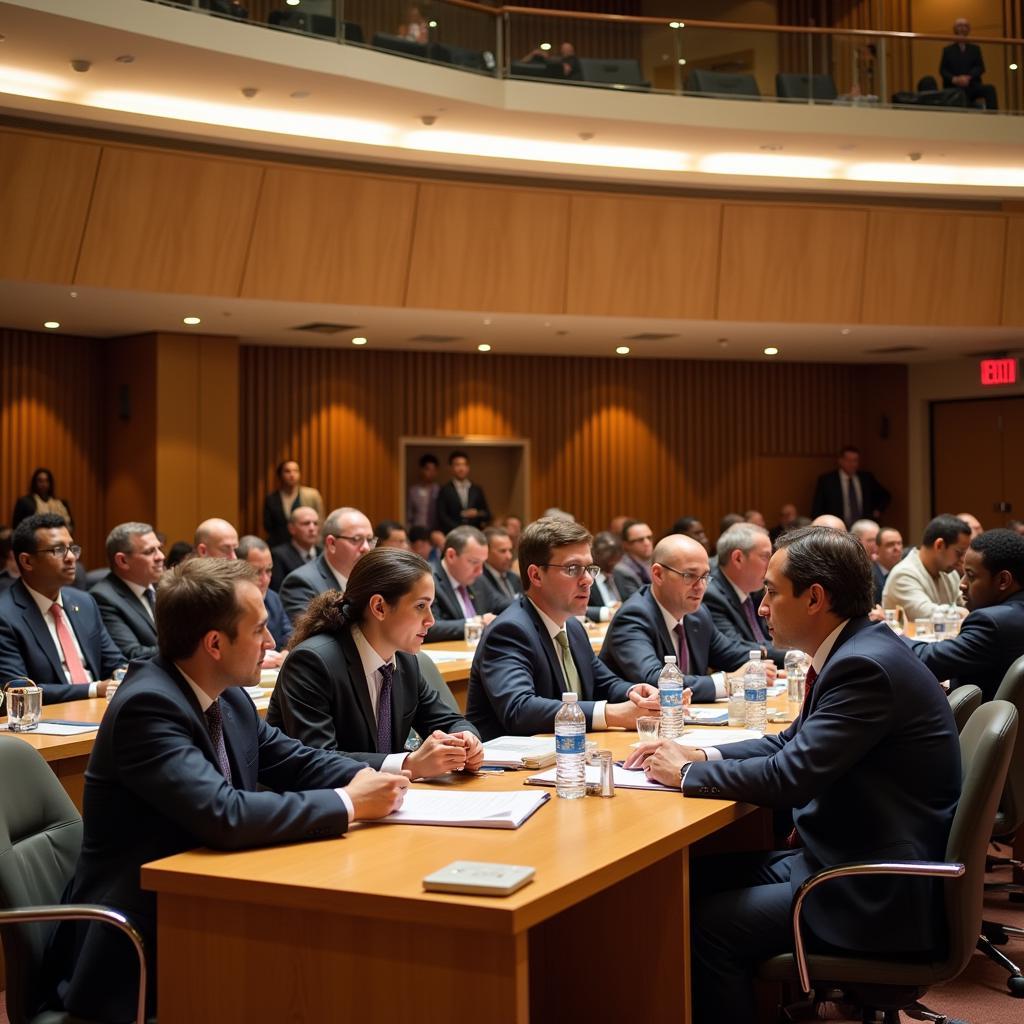African Costumes and Textiles: A Journey Through Culture and Tradition
African Costumes And Textiles are more than just clothing; they are vibrant expressions of culture, history, and artistry. From the intricate beadwork of the Maasai to the colorful kente cloth of Ghana, each piece tells a story, reflecting the unique identity of its wearer and the rich heritage of their community. This journey through the world of African costumes and textiles will unveil the symbolism, craftsmanship, and social significance woven into every thread.
Unveiling the Rich History of African Textiles
The history of African textiles dates back centuries, with evidence of early weaving and dyeing techniques discovered across the continent. These techniques, passed down through generations, have evolved into sophisticated art forms. Indigenous materials like cotton, raffia, and bark cloth are transformed into intricate designs, each carrying specific cultural meanings. For instance, the Adinkra symbols of the Asante people in Ghana communicate proverbs and philosophical concepts through their visual representations. This rich history is not merely a record of the past; it continues to inspire contemporary designers and artists who draw on these traditions to create innovative and meaningful pieces. Early trade routes also played a significant role in the development of African textiles, introducing new materials like silk and influencing design patterns. Check out these African designs for couples.
The Symbolism Woven into African Costumes
African costumes are imbued with deep symbolism, reflecting social status, religious beliefs, and ancestral connections. Colors, patterns, and embellishments all hold significance. For instance, the vibrant red ochre used in Himba attire symbolizes life and earth, while the intricate beadwork of the Ndebele people signifies social standing and identity. Costumes often play a crucial role in ceremonies and rituals, marking important life events like births, marriages, and funerals. These garments are not just worn; they are lived in, embodying the very essence of the wearer’s identity and cultural heritage. Often, specific patterns and motifs are associated with particular clans or families, further reinforcing the importance of lineage and belonging. You might also find interesting information about African dance props.
From Fiber to Fabric: Traditional Techniques in African Textile Production
From the meticulous process of spinning cotton to the intricate art of tie-dye and batik, traditional African textile production is a testament to skilled craftsmanship. The techniques employed, often passed down through generations, involve complex processes that demand patience, precision, and a deep understanding of the materials. Indigo dyeing, for example, requires a series of intricate steps to achieve the desired deep blue hue. Similarly, the creation of kente cloth involves meticulous weaving on narrow strip looms, resulting in the distinctive geometric patterns. These traditional methods are not only crucial for preserving cultural heritage but also contribute to the unique aesthetic qualities that distinguish African textiles. Modern adaptations of these techniques are also emerging, blending traditional knowledge with contemporary innovation. Interested in creating your own? Find inspiration with these African homemade costume ideas.
What are some common African textile patterns and their meanings?
Many African textile patterns hold symbolic meaning. Adinkra symbols, for example, represent proverbs and concepts in Akan culture. Kente cloth patterns can denote social status and clan affiliation.
How are African costumes used in ceremonies and rituals?
African costumes play a vital role in ceremonies and rituals, marking significant life events and expressing cultural identity. Masquerade costumes, for example, are often used in traditional dances and performances.
The Future of African Costumes and Textiles: A Global Influence
African costumes and textiles are gaining increasing recognition on the global stage, influencing fashion trends and inspiring designers worldwide. From high-fashion runways to everyday wear, the vibrant colors, intricate patterns, and unique textures of African textiles are making a bold statement. This growing appreciation not only celebrates the artistic heritage of the continent but also empowers local artisans and communities. By supporting ethical production and promoting sustainable practices, we can ensure that the rich tradition of African costumes and textiles continues to thrive for generations to come. And speaking of African expression, check out this resource on African full sex video.
Conclusion
African costumes and textiles are a vibrant tapestry of culture, tradition, and artistry. From the symbolic meanings woven into each thread to the intricate techniques employed in their creation, they offer a glimpse into the rich heritage of the African continent. As we explore this fascinating world, we not only appreciate the beauty and craftsmanship of these garments but also gain a deeper understanding of the diverse cultures they represent. African costumes and textiles are more than just clothing; they are a testament to the enduring power of human creativity and cultural expression.
FAQ
-
What are some common African textile materials?
Common materials include cotton, raffia, bark cloth, and silk. -
What is kente cloth?
Kente cloth is a vibrant, handwoven fabric originating from the Asante people of Ghana. -
What is the significance of beadwork in African costumes?
Beadwork often signifies social status, age, and marital status. -
How can I support ethical production of African textiles?
Look for fair trade certifications and support businesses that work directly with artisans. -
Where can I learn more about African costumes and textiles?
Museums, cultural centers, and online resources offer valuable information.
Need further assistance? Contact us at Phone Number: +255768904061, Email: kaka.mag@gmail.com or visit us at Mbarali DC Mawindi, Kangaga, Tanzania. We have a 24/7 customer service team.


